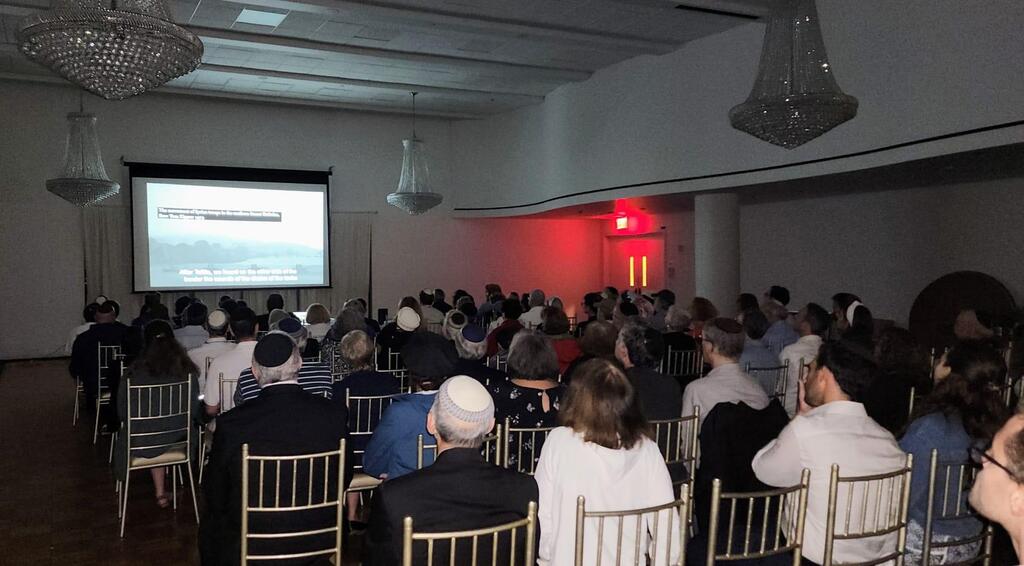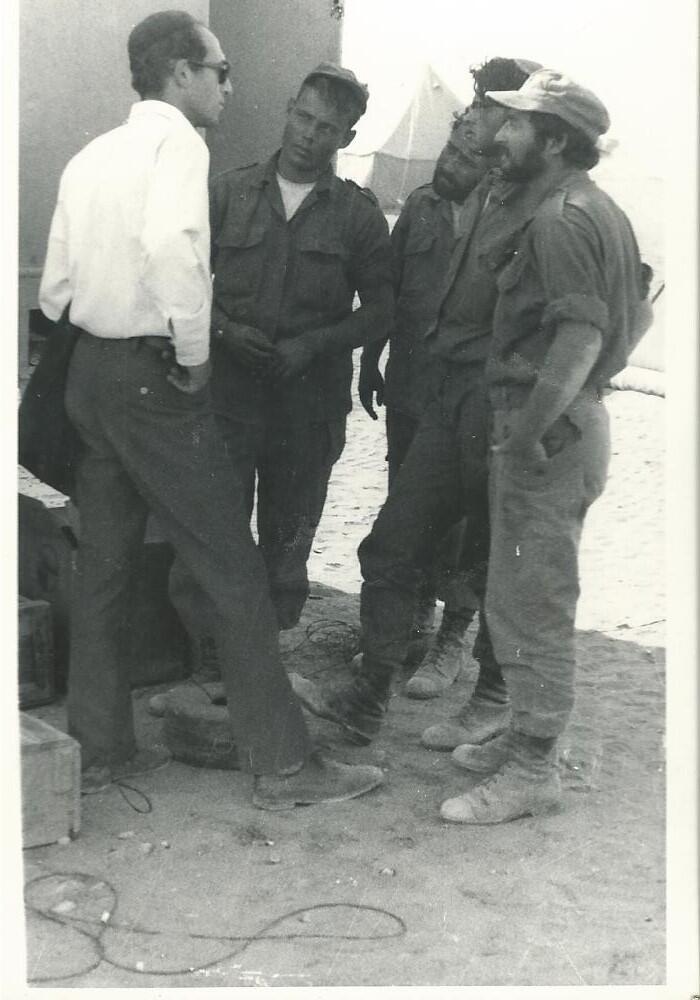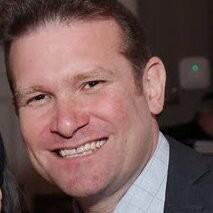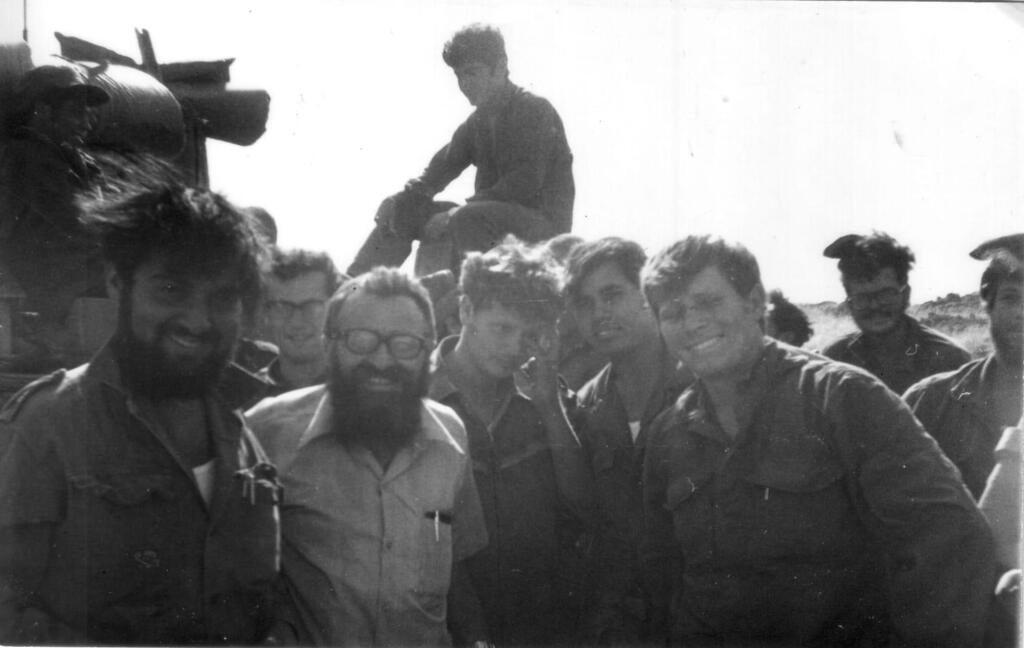Yoel Weiss, 51, is originally from the U.S. but grew up in Israel. He served in the Engineering Corps between 1991-1996 and often disagrees with his group of friends from the army. He currently serves as the director of development and alumni affairs of Yeshivat Har Etzion and Executive Vice President of the Etzion Foundation. Yeshivat Har Etzion is a unique Israeli Hesder Yeshiva, known for combining Torah studies, military service and preserving the history of the Yom Kippur War.
More stories:
In recent years, Weiss has committed to preserving the legacy of the war. He teamed up with Gilad Alfasi to produce "The Yom Kippur War: Yeshivat Har Etzion on the Front Lines," a 35-minute film that explores the war story through the eyes of young yeshiva students, encompassing both Israelis who went into battle and American students at the time who volunteered on the home front in Israel.
The movie is set to make its Israeli debut at Hechal Shlomo in Jerusalem on Thursday evening, featured as part of the Leil Hoshanah Rabbah event organized by Herzog College and Yeshivat Har Etzion. Ynetnews sat down with the producers to discuss their journey in creating the film.
When did you decide to make the movie?
"On the 40th anniversary of the Yom Kippur War, Yeshivat Har Etzion held an event in Israel that included discussions of the yeshiva students who fought in the war after years of not being able to talk about it, including Rabbi Yaakov Medan, Rabbi Yaakov Fischer and Yehuda Shwartz, who was severely burned in a tank during the war. I wanted to recreate such an event in the US where much of my work for the yeshiva takes place and I thought about it a lot, but it took me time to figure out how to make it work. The 50th year since the war was the catalyst to get this project off the ground and I had a team here in Israel and a team in America, Gilad [Alfasi] was the main producer for this movie, while I conducted the research overseas, developed the story line with Gilad and I raised the money for production."
What motivated you to create the movie so long after the war?
"My goal was to show the people still suffering through the aftermath of the war, pay respects to those alive but also those who lost their life, and through the story also share about the institution I work for that means a lot to me. Yeshivat Har Etzion was only 5 years old at the time of the Yom Kippur War and lost about 10% of the student body, many injured and I wanted to tell its story."
Is it screening for the first time?
"The movie is officially screening for the first time in Israel, but has been screened in many Jewish communities and schools overseas including North America, England, South Africa and Australia."
5 View gallery


Premiere Screening in Lincoln Square Synagogue in NYC, September 9
(Photo: Courtesy of Yoel Weiss)
What brought you to co-produce the movie?
"Gilad Alfasi and myself wanted to tell the stories of how Americans who came to Israel as students, some to Israel for the first time and all of a sudden serving on the home front while their fellow Israeli counterparts were drafted to fight on the front lines. We wanted to show the relationship between the religious and non-religious people in the war as well. This is also an incredible opportunity to connect between Israelis and Jews abroad and coming here and seeing how Israelis who serve in the military have an impact on them."
Alfasi: "Yoel wanted to show what Hesder is. One day you are on spiritual high on top of the world, praying and immersed in Jewish texts and the next you are fighting for Israel."
Why is this subject important to you?
Weiss: "To educate how the impact of the war on the yeshiva and vice versa to show also how it connects to people abroad. In recent times, you hear in the protests calls to refuse service and calls to disobey orders. This was a time of war and you couldn’t disobey an order. We were able to share the powerful story of religious and secular people serving together regardless of their religious beliefs and political ideology."
Alfasi: "Whoever comes to Yeshivat Har Etzion, the war affects him. Rabbi Amital changed as a result of the war in his stances on religion, society and more. As someone who studied in the yeshiva and was close to Rabbi Amital, I was also affected by his change but you go through an emotional change when you enter the Bet Midrash and see the list of the names of the fallen soldiers and you can’t ignore it. It’s so present in the entrance and throughout the institution, it’s like they never left us."
What is your connection to the yeshiva?
Weiss: "I’ve been working for the yeshiva for about 17 years. It is a tremendous privilege to work with an institution that embodies the things I hold dear: Israel, Torah and the army."
Alfasi: "Rabbi Fischer who was my mentor and Rabbi Yaakov Medan told me this was the event that affected them to their core and influenced everything afterward."
How many yeshiva students took part in the war? How many have fallen?
Weiss: "Eight fallen Israeli soldiers who were called up for the war out of about 100 students, and over 20 overseas students were here during the war. Some of the soldiers were wearing their white shirts they wore on Yom Kippur when they fought and didn't have a chance to change into army uniform. The Americans wanted to help so they went to visit people in hospitals and volunteered to help in kibbutzim. We also talk about how they postponed weddings because of the war and at times friends from the yeshiva went to a wedding of a fellow student who returned from war on the same night they would go and visit parents at memorial ceremonies for their friends who were killed in the war."
Alfasi: "Specifically for the American students, they wanted to do more but couldn’t be drafted so they did what they could to help and that characterizes the will of those serving on the home front, wanting to do more."
5 View gallery


Rabbi Lichtenstein and Rabbi Amital visiting soldiers on the front
(Photo: Courtesy of Yoel Weiss)
What did the heads of the yeshiva do during the war?
Weiss: "Rabbi Amital took time off from teaching in the yeshiva and would visit injured students who fought in the war, and would visit the soldiers in the field. He went out to support the soldiers and give them spiritual and emotional support in the north and in the Sinai Peninsula."
What is your take on the expression 'there are no atheists in the trenches?'
"Personally, I fought in South Lebanon in the 90's. You don’t realize the impact it has on you later in life. It puts things in perspective. Religious or not, you go in motivated and don’t realize the impact it has on you. You have one mission in the war, to protect the people of Israel. It was an incredible honor to serve Israel in a combat unit. My close friends would barbecue non-kosher meats on weekends when their families would visit them and I still love them dearly and would put my life on the line for them. It opened up my eyes coming from a religious community in the U.S. They came from different backgrounds but they all have the same purpose, to defend the land of Israel, for the Jewish people, religious or not religious. I never thought I’m different from my friends just because I grew up in a religious environment."
"Like in marriage, things get difficult but we have to talk and work things out. Many people say it has to come from the leaders, I think it has to come from the people"
From your own perspective and regarding what’s going on in the country in the past 10 months, what do you think will happen? Another Yom Kippur?
"I’m not a politician but our yeshiva’s policy is our soldiers do not disobey orders. I understand the dilemmas of people and I also understand the concerned people from the Left and Right. Like in marriage and in family, things get difficult but we have to talk and work things out. Many people say it has to come from the leaders, I think it has to come from the people. I’m the only religious person among my close group of army friends that served with me in basic training. My friends go to protest, and we often disagree with one another on various matters but, we mutually respect one another. People in America want to learn what’s happening here."
Is fighting spirit/morale still relevant in the yeshiva?
Weiss: "When you walk in the Bet Midrash, you see a list of students who died in wars and terror attacks with an emphasis on those 8 who died in the Yom Kippur war. During Yom Kippur services in the yeshiva, we announce all of the names of our students who were killed in war or terror attacks in our Yizkor prayer so we never forget those soldiers who fought for Israel and victims of terror. We have a library and there we have the fallen students’ books with notes and pictures. When you come to Har Etzion Yeshiva people understand that we serve the country both in learning and in the army, as warriors and in intelligence, put our lives on the line. The tradition of serving at the highest level possible is still a motivating factor of the yeshiva."
Alfasi: "This reality that you go from yeshiva to military and back to yeshiva is present with all of our students. One day you talk about Gmara and the next day you can be in an unknown location, you be in operations in Shabbat and you ask your rabbi what is allowed and of course, we follow the orders of our commanders and do what we are told."
5 View gallery


Rabbi Aharon Lichtenstein visiting soldiers on the front
(Photo: Courtesy of Yoel Weiss)
What did Rabbi Medan do in the war?
Weiss: "He was a founding student of the yeshiva, Rabbi Medan was in the tanks division up north during the war. Rabbi Medan talks about how his unit and tank division were just about the only thing that prevented the Syrians from taking Safed. When you hear about his story of tradition, herioism and history, you really want to serve."
What would you like the viewers to keep in mind while watching the movie and after it?
"This was a learning process for all involved so it's important to realize what took place 50 years ago both on a historical and personal level. The Jewish Community in America has the opportunity to learn what happened at the time of the war but hearing it from the perspective of an institution that I hold dear has a special effect. It's also an opportunity to hear about the stories of those who fought in the war and the impacts it had on them. I wanted people to hear those stories.
With this movie, we can compare the experience of Israeli 18-20 year olds in contrast to 18-20 year olds around the world and they should learn about the price Israelis have to pay to make sure that Jews around the world have a country they can visit with their families and one day settle in and hear what people go through to keep Israel safe."



